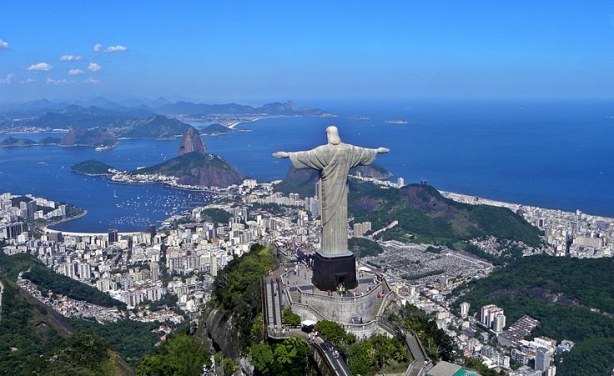Minister of Trade and Investment, Mr. Olusegun Aganga, has said Nigeria and Brazil would work together to double their bilateral trade volume by 2015.
The Brazilian President, Ms. Dilma Rousseff, had told journalists after a two -hour closed door meeting with her Nigerian counterpart, President Goodluck Jonathan, in Abuja, at the weekend, that the volume of trade between Brazil and Nigeria stood at $9 billion at the end of 2012.
Fielding questions from journalists after a bilateral trade meeting with the Brazilian Minister of State, Ministry of Development, Industry and Foreign Trade, Mr. Fernando Damata Pimenta, and his delegation, Aganga said the two countries had agreed to leverage their strong bilateral ties to significantly increase trade and investment inflows into both countries.
He said: "The trade volume between both countries has increased significantly over the years. Brazil is our number three trading partner in terms of crude oil exports after the United States of America and India. In terms of imports from Brazil, most of our rice, sugar and automobiles come from Brazil.
"So, Nigeria has had a good trading relationship with Brazil for a very long time now. The Brazilian Minister of State, Ministry of Development, Industry and Foreign Trade and I will work together to double the trade volume between Nigeria and Brazil by 2015."
Aganga also said Nigeria would partner Brazil in order to convert its rich raw material resources into finished products, in line with the Nigerian Industrial Revolution Plan.
"During our meeting, we discussed our economic relationship and how we could strengthen and deepen this relationship, especially in strategic areas where we want to develop and where Brazilian companies could invest and help to develop the economy of our country. We also discussed about our Industrial Revolution Plan, through which we want to move away from a country that exports raw materials to a country that will export finished goods by developing our value chain, particularly in the sectors where we have competitive and comparative advantage.
"We also looked at how Brazil could take advantage of the huge opportunities that are yet to be fully tapped as contained in our new Sugar Master Plan. We have agreed on the next step which involves trade and investment missions from Brazil to Nigeria. Also, we are looking at setting up the Brazil Nigeria Trade and Investment Council to be able to drive trade and investment inflows into both countries," Aganga added.
The minister added that the meeting also highlighted the critical role of aviation in trade facilitation, noting that both countries were working on the possibility of having airlines travelling directly from Nigeria to Brazil in the very near future.
"Currently, it takes about 24 hours to travel to Brazil instead of about six hours. This is not good for trade and investment. We have both agreed to accelerate this and get it done as quickly as possible," he said.
In his remarks, Pimenta pointed out that Brazilian investors were eager to take advantage of the investment opportunities in Nigeria.
"Nigeria and Brazil have many things in common. Nigeria is part of our history and common future of our growth, development, peace and fraternity. Nigeria is a great nation and I feel very excited being here to discuss issues of mutual economic, trade and investment between Brazil and Nigeria," the Brazilian minister said.
The FSDH Research in its economic forecast for Nigeria, which was released last week, said that with the ongoing reforms in the power sector and the impressive growth in the non-oil potential of the country's economy, Nigeria's trade volume "is expected to jump to N35.05 trillion by the end of 2013."
The Executive Secretary, Nigerian Investment Promotion Commission (NIPC), Mr. Mustafa Bello, in a paper presented highlighted the processes of doing business in Nigeria among which he said included business registration through NIPC.
He noted that there were reforms, which have taken place in Nigeria that will aid doing business in the country, stressing that government had established two business committee for doing business
Bello said apart from population which a great factor for doing business in Nigeria the country has others which include natural resources for raw materials
"We have natural resources, also the location of the country place it safe outside natural disaster zone. The rate of investment is very high in some cases we have over 17 per cent," he stressed.
On his part, the President Nigeria-Brazil Chamber of Commerce, Emmanuel Ibru, had lamented lack of direct link between the two countries.
"There is no longer a direct link as it used to be in the past this is one of the major area that the chamber is pursuing we been working on that and we think something positive will come up on it," Ibru said.
via This Day



